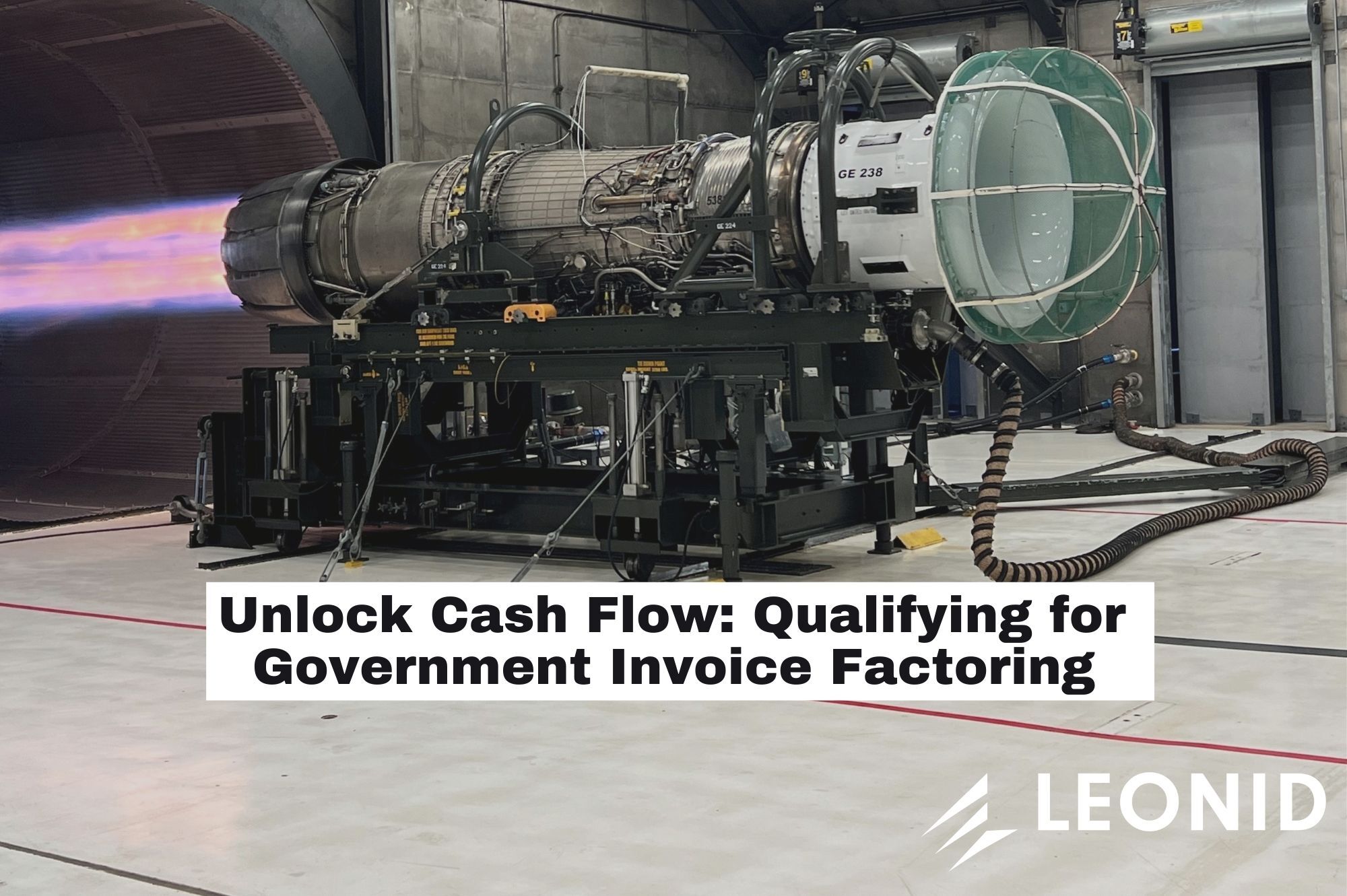
Qualifying for Government Invoice Factoring
by Jeff Chang, LEONID VP of Deals
Government invoice factoring is a financing option that can help government contractors manage their cash flow effectively. Contractors can ensure smooth operations and timely payments by converting outstanding invoices into immediate cash. However, qualifying for government invoice factoring requires meeting certain criteria. We will explore the benefits of invoice factoring and the requirements to qualify.
What is Government Invoice Factoring?
Government invoice factoring is a financial arrangement where a contractor sells their outstanding invoices to a factoring company in exchange for immediate cash. The factoring company assumes the responsibility of collecting payment from the government agency.
Benefits of Government Invoice Factoring
Government invoice factoring offers several advantages to contractors:
- Improved Cash Flow: Factoring invoices provides quick access to cash, enabling contractors to meet their financial obligations promptly.
- Reduced Payment Delays: Contractors can avoid delays caused by lengthy government payment cycles.
- Flexible Financing: Factoring allows government contractors to choose which invoices to factor based on their immediate cash needs.
- Opportunity for Growth: With a steady cash flow, contractors can take advantage of new business opportunities and expand their operations.
Types of Government Contractors that can qualify for Invoice Factoring
Prime Contractor
A prime contractor is a company that directly contracts with a government agency to provide goods or services. They are responsible for overseeing the entire project, managing subcontractors if necessary, and ensuring the successful completion of the contract.
Subcontractor
A subcontractor is a contractor that works under a prime contractor. Prime contractors contract subcontractors to perform specific area of the government contract task that needs their expertise.
What do you need to Qualify?
To qualify for government invoice factoring, contractors typically need the following:
- A Government Contract: Contractors must have a valid and active contract with a government agency.
- Government Invoices: Factoring companies require unpaid invoices from the government agency.
- Credit History: While credit requirements may vary, a reasonably good credit history is generally necessary.
- Financial Statements: Factoring companies may request financial statements or other documentation to assess the contractor’s financial stability. Financial Statements can include the business balance sheet, the income statement, and the cash flow statement.
Conclusion
In conclusion, government invoice factoring offers numerous benefits to contractors, including improved cash flow, reduced payment delays, flexible financing, and growth opportunities. Contractors can ensure a reliable and trustworthy financing solution by partnering with LEONID, a DoD Trusted Capital provider. At LEONID, we specialize in supporting government contractors with True Government Contract Financing, Government Invoice Factoring, and SBIR Award Financing. With our expertise and commitment to providing tailored financial solutions, contractors can confidently navigate the complexities of government contract financing.



